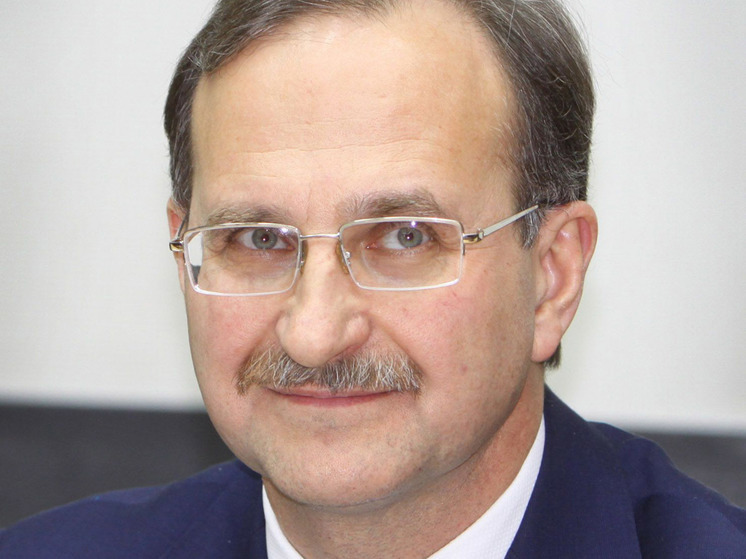Pavel Logachev: “We have all the accelerator technologies thanks to work at the Large Hadron Collider”
About 500 Russian nuclear scientists will stop collaborating with the European Center for Nuclear Research — CERN (CERN) at the end of November. The largest high-energy physics laboratory is closing its doors to our specialists after decades of fruitful work and the great contribution of our physicists to the study of matter due to a special operation in Ukraine. We talked with the director of the Institute of Nuclear Physics of the SB RAS, whose employees directly worked with CERN, about how our scientists helped world science, and how the embargo imposed for political reasons on working with Russians will turn out for them.

The European Nuclear Research Center was founded in 1954. Since the cost of experiments in the field of high energy physics is high, the participating countries and CERN observers contributed money annually to the creation and development of the Center, participated in the development, and supplied their specialists.
About 700 of the best nuclear physicists, engineers and other specialists from 12 leading research institutes from Russia took part in CERN’s main project, the Large Hadron Collider (LHC). Russia, despite the fact that it was never considered a participant in CERN (until recently it was assigned the role of observer), financed the construction of all four LHC detectors and the accelerator itself.
Our scientists have known since September last year that CERN will cease cooperation with hundreds of specialists from Russia starting this year. The reason for a new wave of discussion of this issue was the recent speech of the official representative of the organization, Arnaud Marsollier, in the Western press. Marsollier also recalled that CERN no longer receives any funding from Russia.
“This is, of course, not news for us,” says the director of the INP. Budker SB RAS Academician of the RAS Pavel Logachev. – We have been transferring cases for a long time, Europeans are looking for people who will replace our specialists. Of course, they won’t find such high-class ones as ours… This means that there will be a slight failure for some time until they get the hang of things.
— That’s what Russia has made a big important contribution, that's for sure. The leadership of CERN and all our European colleagues have always emphasized this. Judge for yourself, our BINP alone has made more equipment for the LHC than any other single organization in the world!
– Since the beginning of the 2000s, we have sent equipment there with a total cost of 200 million Swiss francs. These were thousands of tons of magnets and vacuum chambers.
Our institute was responsible for the transmission lines of particle beams from the booster synchrotron to the main collider. As a result, we turned it on, and the beam flew successfully the first time, we didn’t even have to adjust anything special.
The second work concerned superconducting elements for the LHC, the so-called busbars. We made them for the entire 27 km accelerator ring.
— More than a hundred. But there is not a single person who would work there permanently, as, for example, specialists from other scientific organizations did. We are one of the few institutes that made all the high-tech equipment at home and brought finished products there. We did this on purpose to preserve the institute and keep the technology. As a result, we can now create SKIF (Siberian Ring Photon Source — author), SILA (synchrotron laser radiation project in Protvino — author). We have all the accelerator technologies thanks to our work with CERN. I will not go into detail about what defense technologies we developed at BINP thanks to that work. All the authors who participated in the discovery of the famous Higgs boson worked on them.
– There are always such people, but there are not so many of them. You know, almost all BINP physicists underwent at least a six-month internship at foreign institutes, but most returned with the words: “It’s better at BINP!”
— We have a completely different atmosphere: free, creative, human.
— They lead there according to the principle: “I’m the boss, you’re a fool.” And all because for the last 20 years, science has been “ruled” by managers, like we have now, who have little connection to the business and profession. Besides, if you are not a Native American, they will not give you a chance there — they will use you and throw you out at the first opportunity. Our guys understand this and are not particularly eager to go there.
– There is a much greater contribution than the Higgs boson. Our joint work at the LHC led to the realization that in its energy range the hypothesis about the birth of so-called supersymmetric particles is not confirmed. This theory, if it had been proven at the LHC, should have expanded the Standard Model (the theory that describes the fundamental particles that make up matter — author) and resolved its main internal contradictions. However, it turned out that no supersymmetric particles arise in the collider, which means that our approaches to expanding the Standard Model are incorrect, which means that nature is structured differently.
– Theory of dark matter not confirmed. Everyone is now in limbo. And this negative result is also a result. It will now allow thousands of physicists and mathematicians to switch from that paradigm to a new one, to escape the dead end. Russian scientists will have to search and find new areas of research with friendly countries.
The LHC is a 27-kilometer ring accelerator of charged particles.


